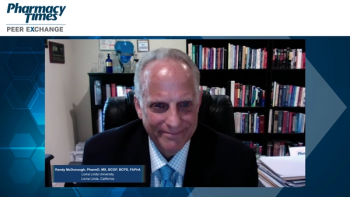
These benefits included increased survival, a lower risk of hospital readmission for heart failure, and an overall improvement in quality of life.

These benefits included increased survival, a lower risk of hospital readmission for heart failure, and an overall improvement in quality of life.

Vericiguat is indicated to reduce the risk of cardiovascular death and hospitalization for heart failure.

mRNA encoding vascular endothelial growth factor into the myocardium of patients undergoing elective coronary artery bypass surgery was both safe and tolerable in patients with heart failure.

Bacteria, fungi, and other germs that cause endocarditis may enter the bloodstream through improper dental care, catheters, and IV drug use.


If approved, empagliflozin would be the first therapy proven to significantly improve outcomes for individuals with heart failure, according to Boehringer Ingelheim.

But expanding coverage in 2014 was associated with a notable increase in enrollment among individuals with heart failure, study results show.

Empagliflozin demonstrated a 21% relative risk reduction for the composite primary endpoint of cardiovascular death or hospitalization for heart failure, compared with placebo.

Compared to women who followed the Portfolio Diet less frequently, those with the closest alignment were 11% less likely to develop any type of cardiovascular disease, 14% less likely to develop coronary heart disease, and 17% less likely to develop heart failure.

In clinical trials, empagliflozin significantly reduced the relative risk of the primary composite endpoint of time to cardiovascular death or hospitalization for heart failure by 25%.

Study examines whether dapagliflozin is cost-effective when added to standard of care for patients who have heart failure with reduced ejection fraction.

Its important for the patients with heart failure to know how much their ejection fraction is.

A panel of experts concludes by highlighting key advice for community pharmacists managing patients with heart failure and emphasizing the importance of communication between providers on the health care team.

Key opinion leaders in the pharmacologic management of heart failure share insights on optimizing care by using a patient-centered approach and shared decision-making.

Randy McDonough, PharmD, MS, BCGP, BCPS, FAPhA reviews the goals of pharmacologic maintenance of heart failure and comments on the importance of social determinants of health, health system efficiency, and patient education.

Panelists consider the goals of guideline-directed medical therapy and reflect on how recent updates to clinical practice guidelines may impact therapeutic pathways.

A thought leader in the pharmacologic management of heart failure, Alexandra Goncharenko, PharmD, BCPS, BCCP, reviews the mechanism of action of vericiguat and considers its place in the treatment landscape.

Experts in cardiology and pharmacy provide an overview of the cardiac benefit of SGLT2 inhibitors by discussing their mechanism of action, safety, efficacy, and cost burden for patients with heart failure.

Key opinion leaders in cardiology and pharmacy consider the role of ivabradine to reduce heart rate and lower the risk of hospitalization for patients with heart failure.

A panel of experts builds a discussion on the role of angiotensin receptor-neprilysin inhibitors for the management of heart failure and highlights the importance of considering patient adherence and cost burden.

Key opinion leader in pharmacy, Randy McDonough, PharmD, MS, BCGP, BCPS, FAPhA, provides insight into the history of conventional treatment approaches in heart failure.

Alexandra Goncharenko, PharmD, BCPS, BCCP reviews factors that may influence treatment approaches for heart failure and emphasizes the importance of diagnosis to begin maximally tolerated doses of guideline-directed medical therapy.

Ryan Jacobsen, PharmD, BCPS leads a discussion on defining heart failure with preserved ejection fraction (HFpEF) and heart failure with reduced ejection fraction (HFrEF) as well as the importance of staging and functional classification criteria.

Recently, many providers have become worried about the potential of certain medications to worsen transmission and outcomes in the setting of the global COVID-19 pandemic.

Results of the DAPA-HF trial demonstrate the efficacy and safety of dapagliflozin in patients with heart failure.